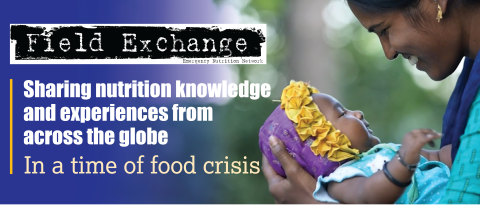The impact of climate change on nutrition: Learning from four countries
This is a summary of the following report: World Vision (2022) The impact of climate change on nutrition: Policy brief. https://www.worldvision.ie/about/publications/the-impact-of-climate-change-on-nutrition/
Anne-Marie Mayer is a Consultant working in Nutrition and Agriculture at World Vision Ireland for this study
Clodagh McLoughlin is Programme Manager for Development Programmes at World Vision Ireland
The effects of climate change have already taken hold across the world. Despite low greenhouse gas emissions, Africa is bearing the brunt of such changes, with severe weather patterns ranging from droughts to flooding, alongside devastating food security and health impacts. Climate change affects all forms of malnutrition through pathways and interlinkages related to the three determinants of malnutrition identified in the UNICEF Conceptual Framework.1
Programmes that do not include adaptations to climate change struggle to improve malnutrition. World Vision Ireland’s Access Infant and Maternal Health Plus Programme has been implemented in areas affected by climate change that have experienced challenges in improving nutritional outcomes.
This policy brief explores the different forms of climate and nutrition challenges experienced by communities targeted by the programme. The brief is based on a study commissioned by World Vision Ireland, which explored challenges and local responses to the climate and nutrition problems experienced in four African countries – Mauritania, Sierra Leone, Tanzania and Uganda – producing case studies for each.
The case studies found that both agricultural production and food hygiene practices have been severely affected by droughts and floods; women’s time and work burdens have increased, subsequently impacting infant and young child feeding practices; food quality has deteriorated; food prices have increased; diets have deteriorated in both quantity and quality; and water-borne diseases have increased – all of which are attributed to climate change.
Adaptations and mitigations
Both communities and World Vision staff described several programme approaches that appeared most promising in meeting the challenges described: the promotion of conservation agriculture and keyhole gardens; the introduction of drought-tolerant and biofortified crops; new water sources and treatments; fuel conservation measures; gender equality activities; and training on post-harvest handling and measures to prevent communicable diseases. The ways in which the programme and communities responded were notable; they used existing programme models, local partners, community structures and innovation to address the devastating effects of climate change on nutrition.
Generalisable recommendations for programmes to improve nutrition in the context of climate change
Given the far-reaching consequences of climate change on nutrition, well-integrated and flexible programmes are required. These will necessarily span different sectors, such as agriculture, health, gender, disaster risk reduction and others. Building resilience in each sector is essential; gender empowerment is also key.
A flexible and localised strategy for climate change and nutrition is needed, drawing on a set of core project models and a mechanism to diagnose and adapt according to context. For example, local partners can draw on local and indigenous knowledge. Local agriculture research stations make plant available varieties that are adapted to the new climate conditions and to local pests and diseases.
Capacity building at all levels of the organisation for climate change adaptation is also necessary. Drawing up guidelines using in-house and global resources is necessary, with a full list of possible measures to take.
Strong community resilience is essential to adapt to climate change, and this can be nurtured to help communities cooperate, adapt, advocate and innovate in the face of the new challenges.
A systematic monitoring system designed to cross all sectors is necessary for organisations to share their experiences and build evidence about challenges and effective strategies.
It is extremely urgent that the devastating effects of climate change on nutrition should be addressed. This series of case studies shows that communities and organisations can work together in a myriad of ways to try and build local resilience. However, mitigation on a global scale is imperative.


